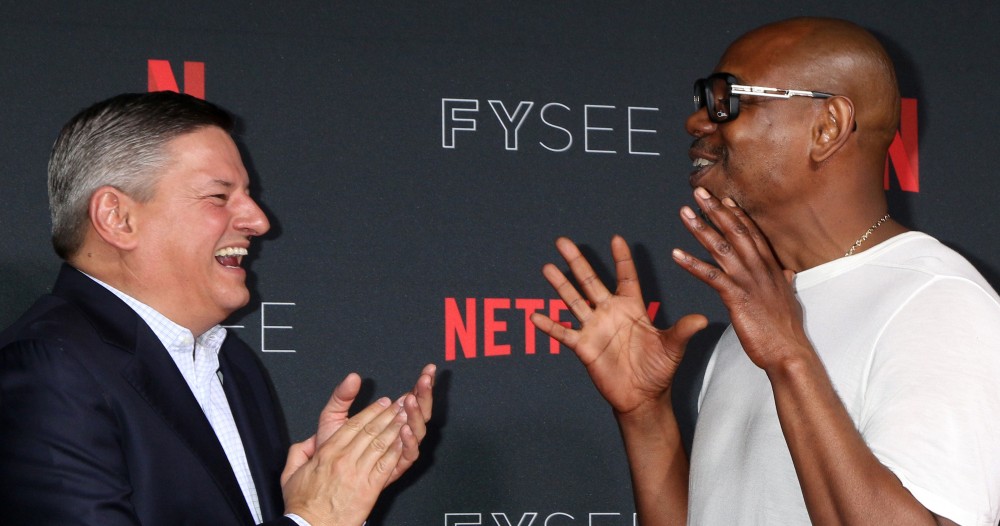The streaming wars are changing Hollywood and here’s how talent is winning and losing in this new arms race for original content.
For aspiring actors, filmmakers, writers, and crew members, the demand for new and original content is expected to increase. However, the likelihood of working on a syndicated TV series is set to decrease, causing many people working in the entertainment industry to look for their next opportunity continually.
The TV and film industry is going through a tremendous transformation that has never been seen before. Hollywood is moving towards launching new streaming services and spending millions of dollars in the process. Netflix and Disney are negotiating multi-million dollar deals to secure programming, which is fundamentally changing how business is done with talent.
According to the Wall Street Journal, as the number of productions released to consumer increases, seasons for shows is going to get shorter and shorter. As a result, for actors, producers, and crew members, it means moving on to new jobs more frequently.
Disney+

Disney controls Hulu and in November will release a new low-cost service called Disney+. The streaming platform will feature Marvel and Star Wars series, kid content, and original TV shows and movies. Meanwhile, Apple is launching several premium shows featuring A-list actors. WarnerMedia’s HBO Max and Comcast Peacock are set to release next year, adding to the significant competition between Netflix, Amazon, Hulu and CBS’ All Access.
BET+
BET+ is also now available. One of the key highlights of the new BET service is the partnership with Tyler Perry Studios. Tyler Perry’s back catalog of work and new content will be featured in BET+. Standup specials from Nick Cannon, Lil Rel and Sasheer Zamata and upcoming shows like “First Wives Club,” “Bigger,” and “Sacrifice.” Content from Viacom-owned brands such as VH1’s “Love & Hip Hop: Atlanta,” “Basketball Wives,” “T.I. & Tiny: The Family Hustle,” Comedy Central’s “Why? With Hannibal Buress,” “MTV’s Todrick,” TV Land’s “Soul Man” and Nick at Night’s “Instant Mom” will also appear on the platform.
How the streaming wars is changing the film industry
Syndication
For the past 50 years, the basic formula for producers to make a lot of money is to reach 100 episodes. By achieving at least a 100 episodes, the show will have enough episodes to sell reruns from “syndication” deals. Hit TV shows such as “Seinfeld” and “Friends” have made millions of dollars following this formula.
Netflix’s business model

Netflix changed the game when it started approaching and landing deals with major producers to make content exclusively for the platform. Shonda Rhimes and Ryan Murphy both landed multi-million dollar deals. However, Netflix does not sell reruns. As a result, producers can not obtain syndication profits.
Netflix launched this business strategy. Now, Warner Bros and Disney are following suit. But, with so much competition and high demand for high-quality content, writers and producers are getting paid more than ever for their work.
Upront money versus syndication
By guaranteeing a large amount of money upfront, the risk of creating content to surpass 100 episodes is gone. That said, there are possible downsides. For example, if a show becomes a major hit, it does not generate the profits you would have generally obtained from reruns.
It is important to note, Disney can put a show that the company has produced on whatever platform they choose without renegotiating deals. Warner has a similar idea, which is enormous if an entertainment platform wants to move TV projects to their streaming services.
In an interview with WSJ, producer Mike Schur (“The Office” and “The Good Place)” says he is concerned about the business model Disney is using in their business deals.
“There’s a deal you make when you create a show. You guys own most of it, but I own some of it. Together we’re going to go out into the marketplace and sell it to the person who offers the most money,” Mr. Schur said. “The most strident capitalists in the world are the ones opposing a free market,” he added.
Overall
Very few shows land syndication deals. But, under this new streaming business model, it will get tough. There are no incentives to get up to 100 episodes. But, some producers are not complaining saying there is more freedom in creating fewer episodes.


